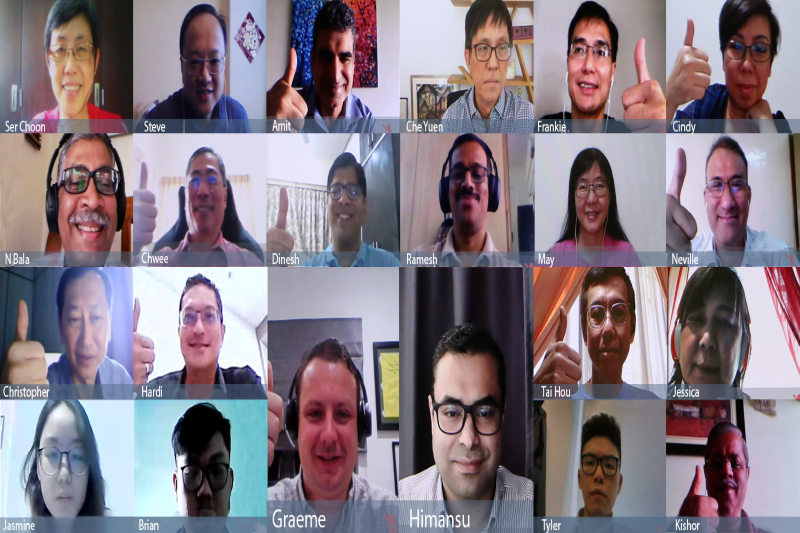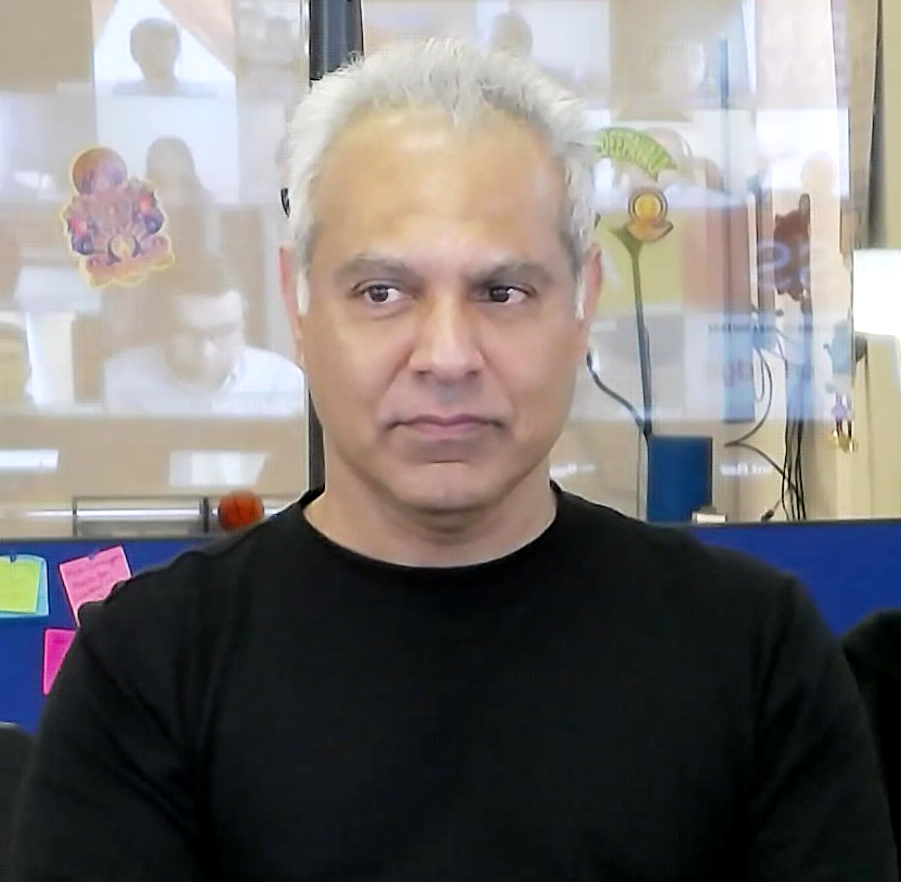
Most organisations have business continuity plans in place, ready for a crisis. But the scale and magnitude of the COVID-19 pandemic forced them to completely rethink these plans. Managing a crisis along with all the other aspects of business is a big challenge that can make even the biggest corporations and organisations lose their bearings quickly.
To provide better visibility and direction to keep operations going, OpenGov Asia hosted an OpenGovLive! Virtual Breakfast Insight: Strengthening Operational Reliability and Agility – Always On, Always Ready Organisation. The event witnessed a 100% attendance from delegates based in India and Hong Kong and Singapore.

The session was opened with a welcome address and a quick round of introductions by Mohit Sagar, Group Managing Director & Editor-in-Chief, OpenGov Asia.
In order to be truly resilient, organisations must leverage technology
Mohit spoke about the pains organisations are going through as they have had to physically and economically safeguard themselves along with balancing the various aspects of their business – like cybersecurity, staff well-being, customers service, regulations etc.
Despite having incident management plans in place, the pandemic caught many off-guard. In the ensuing chaos and confusion, leaders deviated from plans looking for more relevant solutions for the problems at hand.
He cautioned the audience to not have unrealistic expectations from their incident management teams as they are not capable of working miracles. Mohit strongly felt, for organisations to be truly resilient, they must adopt suitable technology. In fact, the right technology needs to be at the centre of any strategy, with people working determinedly to incorporate tech into an organisation’s incident management plan.
Mohit concluded by advising the delegates to not try and do everything on their own; rather he encouraged them to partner with those who are experts and leave space for errors.

After Mohit’s opening, Graeme Orsborn, Vice President, CEM Business Unit came shared insights from an Everbridge point of view.
How Everbridge can support organisations to become resilient
Graeme agreed with Mohit’s opinion on keeping technology at the centre and wrapping people around it. Currently, organisations are going digital and there is a lot of pressure to keep systems on and always running.
He shared that Everbridge’s goal as an organisation is to shrink the response time in case an incident occurs. From their experience, when observing the average incident response, a lot of time is spent in getting the relevant information to the right people so that they can act.
To make this process more efficient, organisations need is to move away from spending unnecessary time rallying and responding to IT disruptions and eventually start automating and orchestrating the entire timeline. This puts the onus on the IT teams as the drivers of processes and business instead of supporting it.
Graeme shared that Everbridge has an effective way of troubleshooting IT disruptions by monitoring and analysing the huge volume of data for abnormal activity and using it as a trigger point for the response process to kick-in automatically without requiring human intervention. Several organisations are seeing a lot of value in these solutions. To support this position, he shared a few examples like Finastra and wordplay who have seen visible positive results from the solutions.
He concluded by encouraging the delegates to use the power of technology to remain effective and resilient.
Strengthen security to deliver world-class financial services to customers

After Graeme, Himanshu Shrivastava, Managing Director and Head of Digital Technology – APAC and EMEA Global Consumer Technology addressed the audience with some insights.
Himanshu explained that his organisation’s goal in the service management space is to provide world-class service quality to customers. To meet this goal, it is imperative that all their processes be strengthened and secured with no IT disruptions or downtime. Agreeing with Graeme, he shared that there is a lot of pressure on organisations today to keep their services up and running at all times.
He went on to reveal where they are currently on their journey towards achieving their goal. They have digital command centres that have automated healing and control systems that troubleshoot whenever there is an IT incident. While robust, he acknowledged that they are still striving to improve these systems and become world-class in a true sense.
The major driver behind developing these processes is to serve our customers with the best quality services. They do this by getting constant feedback and updates via a proprietary listening mechanism powered by AI/ML that collects and analyses input. This process then is able to efficiently resolve pain points highlighted from it.
In conclusion, Himanshu detailed the initial results of their solutions and the path for the future. He was proud to share that they were able to predict and resolve several IT issues almost an hour before it could start impacting the operations. Going forward, they aim to scale this for all their customers.
After the information-rich presentations from the speakers, it was now time to engage the audience in discussions through the polling session.
On the first question about incident management automation and streamlining during an IT Incident, a major part of the audience voted that it is good but there is room for improvement (80%).
To this a Head of Governance Risk Compliance – IT from an organisation in India shared that currently they have a good automating and streamlining during an IT incident but there is a lot of unnecessary noise around it. So, they want to improve their current system that directs them to the relevant solution filtering out the unnecessary noise.
On the next question about the preferred way of communication with the team during major incident management, most delegates voted that they use multi-modal methods like voice, SMS, E-mail, etc to communicate (36%).
To this, a senior delegate from a tech organization in Singapore shared that they do use the multiple channels for communication generally but if they have to convey a message very urgently, they use SMS and voice call as the response expectation is higher in these modes.
On the final question about having a system in place that evaluates the business value your organisation receives from the SLA’s as well as the time and cost of monitoring and administering those agreements, most delegates voted that they do not have a system in place to do a proper evaluation (50%).
A senior delegate from India reflected that they have a system in place to validate SLA’S IN terms of the time etc. But except for penalty cases, they do not relegate any money matters to that system. Their system is still maturing and they hope to incorporate this in it.
After the polling session, Graeme addressed the delegates to bring the session to a close. He thanked the audience for contributing to the discussion and congratulated on the tough jobs they have been doing for the past few months.
Graeme encouraged them to leverage technology to overcome the IT challenges they are currently facing and assured that the Everbridge team is always available to assist and support them.
















